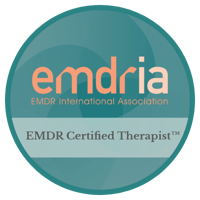PTSD Therapy
 Are you searching for therapy for Post Traumatic Stress Disorder after a traumatic event?
Are you searching for therapy for Post Traumatic Stress Disorder after a traumatic event?
Are you suffering from lingering fear and anxiety?
Do you feel like you no longer have any control over how you think, feel, and interact with others?
You may have heard of trauma responses, which are survival reactions including fight, flight, fawn and freeze.
Post traumatic stress disorder (PTSD) can occur in individuals who have experienced or witnessed a traumatic event such as a natural disaster, a terrorist act, an act of war, a serious accident, rape, or any other violent personal assault. Complex PTSD refers trauma with a high severity, duration and frequency. This can include physical or sexual abuse, relational trauma/attachment wounds in childhood, chronic medical problems and intimate partner violence (domestic abuse).
What are the Symptoms of PTSD?
People with PTSD often experience intense thoughts and feelings related to their traumatic experiences. These can last for a long time after the initial event. Many people with PTSD also relive the event through flashbacks and nightmares.
People may isolate from friends, family, and their community. They avoid people and situations that remind them of the traumatic event. Ordinary sounds or incidents such as a door banging or accidental touch in a crowd may cause a strong adverse reaction that is uncontrollable. You may also feel a trauma response in your body such as panic, nausea or numbing.
Trauma-focused therapy works to decrease distressing emotions, unpleasant bodily sensations and negative beliefs, including the labels you give yourself. Often the brain overgeneralizes to other situations. A thought of “I’m not safe anywhere” leads to avoidance of other situations going forward. While avoiding situations feels ‘safer’, it also leads to fewer opportunities to socialize or to have pleasurable experiences. Good trauma work focuses on all components: thoughts, emotions, body sensations and behaviors.
It’s important to know that you are not defined by your trauma, even though it is impacting your life. Therapy won’t erase the trauma. You won’t forget what happened to you, but it will no longer have the same intensity. Post traumatic growth is the belief that you have many strengths and abilities, not because of the trauma you experienced, but in spite of what you went through. You used your survival skills to protect yourself. I have a deep respect for clients who’ve transformed their lives through therapy. I want to offer the help you need to feel hopeful and enjoy life again.
Below are some trauma treatment options:
- Eye Movement Desensitization and Reprocessing (EMDR) – A mind-body approach that uses bilateral stimulation, such as side-to-side eye movements, to stimulate the brain to process difficult thoughts, memories, and emotions.
- Trauma Informed Cognitive Behavioral Therapy (CBT) – Talk therapy that focuses on how thoughts, feelings, and behaviors are related to one another.
Sarah Elaine Zimmerman, LCSW
Licensed Clinical Social Worker
NPI #1134314214
Active SW licenses: FL #SW17459, NY #R069287, MD #10135 and VA #0904011066
561-508-8809


